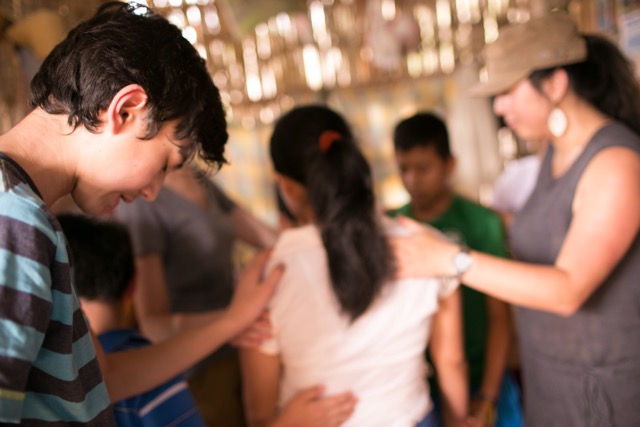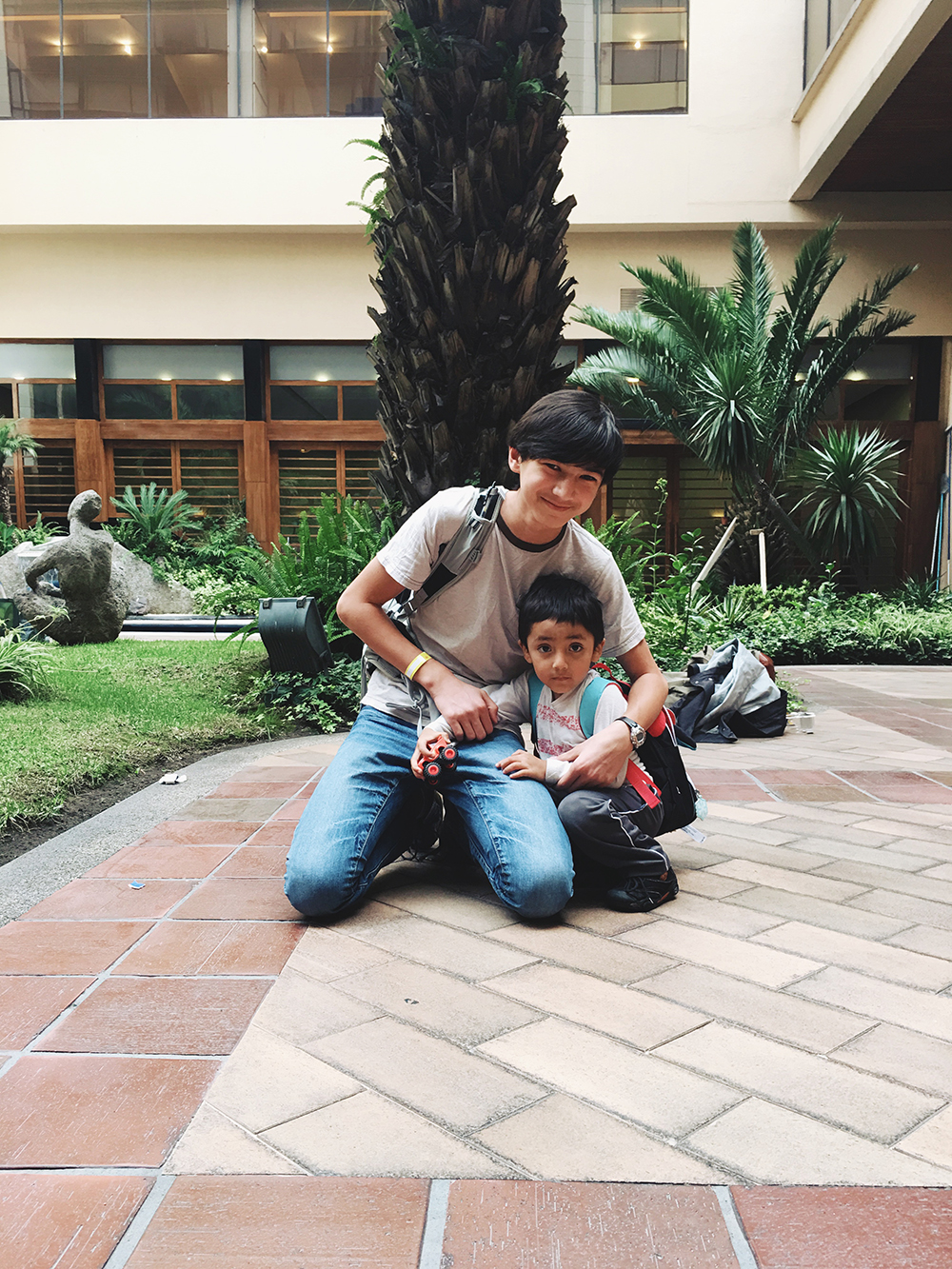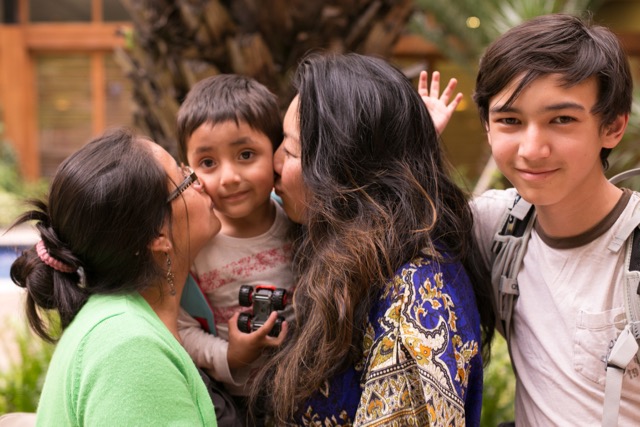I’m heading home tomorrow night, and will be back at school on Monday, but I wanted to share a few thoughts I had with you. I thought I knew what poverty looked like. I thought that it was the guy on the corner of Central and Washington, holding an "I'm hungry." sign. I thought that was the extent of it until I came to Ecuador.

I thought I knew what work was. But now I know that I haven’t tasted real work until I worked with a man in the hills of Otavalo. We did some of the daily tasks that they use to make ends meet. As I tried to karate chop stems off giant gourds like he did and worked to harvest quinoa seeds off their stalks, I saw one face of poverty in Ecuador. They belong to the ones who work from morning until night at back breaking work, and make way under $300 a month.

Guys, this week I met the child we sponsor, Mathias. He’s 3. Before I met him, I had 5 brothers who looked up to me, now I have six. There is a continual sense in impoverished families, Mathias’s included, that their life doesn’t amount to much, and that they will never break free from their reality. A reality that includes: living out of one room, leasing space in their tiny home to make extra income, living with no refrigeration, and uncertainty about food and finances. Mathias doesn’t know it yet, but his family struggles to have hope for a different future. The cycle of poverty is hard to break in Ecuador.

What I’ve learned this week first hand is that when children come from impoverished families, many of them drop out of school in order to help the family make money. Uneducated people most often cannot get jobs. When they can’t get a job, they sink deeper into poverty. The cycle continues.


The visits we made to the Compassion centers and homes this week have changed my view of poverty drastically:
Poverty is not just economic; it’s social, emotional, and spiritual as well.
When families do not have access to clean water or medicine, there is little hope for survival. When human trafficking abounds and domestic violence is constant, there is little hope for greater sense of self-worth.


Children are not given the opportunity to dream. They are simply taught that they will never rise above poverty. When they are told this, they can’t imagine that their life is worth anything. It’s hard to imagine that anyone would in their situation.

That’s where child sponsorship comes into play. This week I had a chance to see first hand the impact it has on a child’s life.

Through local churches, child sponsorship makes it possible for children of poverty to know that Christ created them for a purpose. That knowledge, along with the resources needed to help them grow and develop, causes children in poverty to rise above their circumstances to a new sense of hope.


This opportunity to change a child’s life is one I am glad I did not miss. Be a part of this mission, and release a child from poverty. PLEASE SPONSOR a child today!
Friends, we have a heart goal of 200 sponsored children by the end of our Ecuador #compassionbloggers trip...to God's glory. Help us reach that goal (we are at 142 children sponsored currently!)
Read posts from Shannan's son, Calvin here and Ashley's son, Corbett, here. (Photos in this post by Ashley Ann Campbell and Mike Varel)



